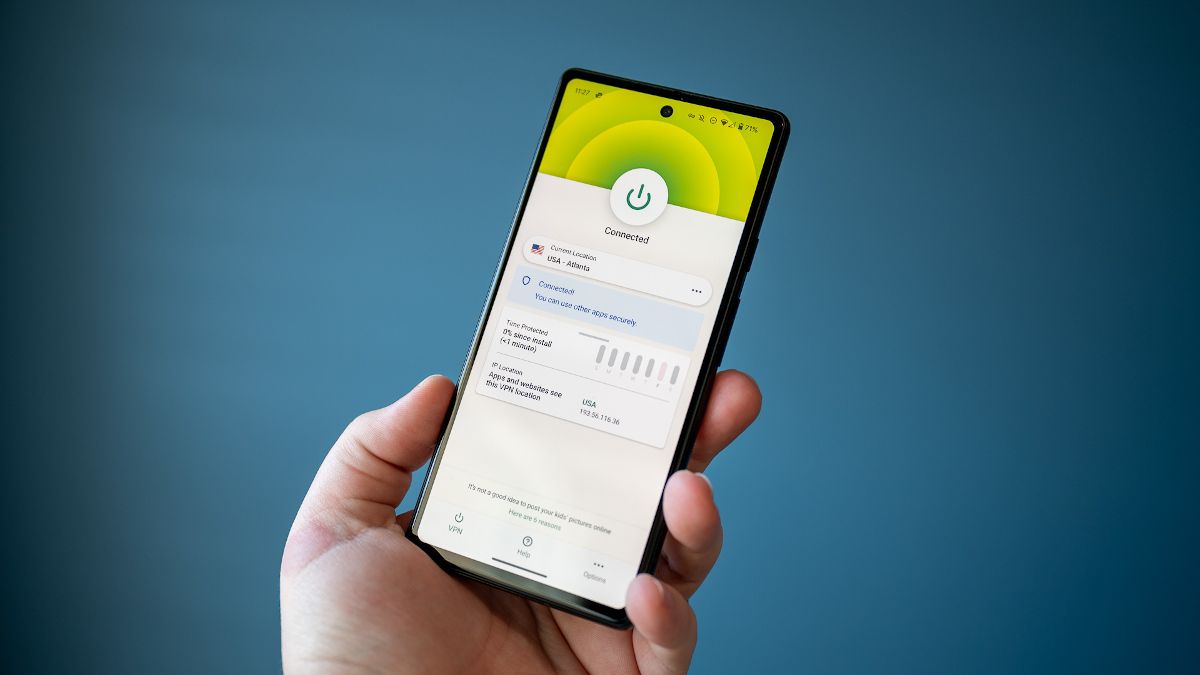Quick Links
Key Takeaways
U.S.-based servers have been the target of legal action by copyright watchdogs and the movie studios they represent. Though it’s not clear how likely new threats are, staying away from servers based in the United States is a smart bet.
You probably know you need a VPN for torrenting or run the risk of being fined into oblivion. However, just because you're using a VPN doesn't necessarily mean you're safe, especially if you're using servers based in the United States. Here's why.
What Does It Matter Which Server You Choose?
Of course, you may wonder why it even matters where a VPN server is located, besides that it will make you appear like you're in that country. It's a simple matter of jurisdiction: if a server is in a certain country, it falls under that country's laws.
For example, in July 2021 Ukrainian authorities seized two servers owned by Windscribe, a popular VPN provider, in the course of a criminal inquiry. Though Windscribe is based in Canada, its Ukrainian servers were still subject to lawful seizure in the Ukraine, and with it any data that was on them. Thankfully, that data was encrypted and so Windscribe's customers were safe.
Had Ukraine tried to seize servers in Poland, say, it would have had to submit a request to the Polish authorities. For more on this, check out our article on whether it matters where your VPN is based.
The same rules that let Ukrainian cops seize a Canadian company's servers also let U.S. courts decide what happens with servers on U.S. soil. This is where torrenting comes in: the past few years, the world of software piracy has been shaken up by some high-profile lawsuits filed by Hollywood studios or their proxies, targeting both VPNs and their customers.
What Happens When Providers Get Sued?
In each case, the targets are torrenters and the VPNs that facilitate them, which is virtually all of them. The suits have taken several guises: some aim to simply make it so a provider's U.S. servers can't be used for torrenting.
TorGuard, for example, was sued and now no longer allows BitTorrent traffic on its servers. The same goes for VPN Unlimited, which also shut down torrenting on its American servers under threat of litigation, as did a small provider called VPN.ht.
In these cases, using U.S. servers for torrenting means your connection simply gets shut down, which is annoying, no more than that. That said, U.S. customers who found out their nearby server suddenly didn't allow torrenting were probably less than pleased when the VPN they paid money for no longer did what it promised.
Users Are at Risk Too
However, there has been a second type of lawsuit, one in which the plaintiffs decided to go after the users of a VPN service. One example is when Private Internet Access was asked to hand over data on all its users who had torrented the movie Angel Has Fallen. In the end, nothing came of the case, but there's a good chance it's writing on the wall.
In the PIA case, the plaintiffs were targeting users rather than the service itself. How they were identified is unclear, but we can only assume that the company's trackers pierced the veil or that the users themselves somehow leaked information. DMCA notices were sent to 15 users, and then PIA was asked to give more information about them---though the subpoena never materialized.
Know What Your VPN Knows About You
It's important to note that there are essentially two types of information your VPN could potentially know about you: your internet activity and who you are. If your provider is truly a no-log VPN, your activity should be secret. In the case above, the Hollywood lawyers already knew about the activity through other means---how exactly isn't known, just that PIA wasn't at fault.
However, who you are is a different issue. Since so very few VPNs allow for anonymous signup, they usually have a pretty good idea of your personal details. On account creation, you give them your name, email address, and usually payment information, too. Technically, if there's proof that you did something wrong, your VPN could be forced to hand that information over under a warrant.
Why U.S. Servers Are a Target
Naturally, this could be an issue in any country, but so far it's been U.S. servers and U.S.-based VPNs that have been most at risk. This is likely due to a few reasons, one of the most important being that these are U.S. lawyers hired by U.S. companies, making it a lot easier to go after U.S.-based torrenters rather than ones in other parts of the world.
Still, though, just because you're in Europe or Asia doesn't mean you should be too quick to use U.S. servers when torrenting. Besides the practical issue of slowdowns, we doubt it's a good idea to get on copyright watchdogs' radar, especially if you can avoid that by simply not using U.S.-based servers.
As for American torrenters, we recommend that they use servers that aren't quite as likely to be targeted by litigious copyright holders. We suggest servers in Canada, where our favorite torrenting VPN, IVPN, has a server, as does another favorite, Mullvad.

